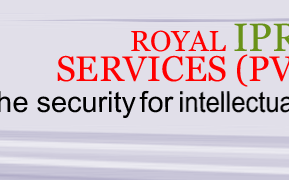A Memorandum on Pakistan's new Patent Ordinance, 2000)
Effective December 2, 2000
Pakistan as a member of WTO and signatory to the Agreement on Trade Related Aspects of Intellectual Property Rights ("TRIPs") undertook to amend its patent law to conform to TRIPs' obligations. Beside TRIPs' requirements, the industrial developments since 1911 have also made it mandatory to amend the Patents & Designs Act, 1911.
We are pleased to inform you that on December 2, 2000 the President of Pakistan promulgated the Patents Ordinance, 2000 which complies with TRIPs' requirements, as well as, it corresponds to the regime of new patent laws promulgated around the globe. While product patents have been allowed in the law, as well as, life of the patent has been extended to 20 years, the new law is a remarkable departure from nearly century-old legislation. This memorandum gives salient features of the new law.
Definitions:
Section 2(c) of the Ordinance defines invention to include "any new and useful product, including chemical products, art, process, method or manner of manufacture, machine, apparatus or other article; substance or article or product produced by manufacture and includes any new and useful improvement of any of them and an alleged invention". Process is defied to mean "any art, process or method of new manufacture of a product and includes a new use of a known process or a product". Similarly, product is defined to include "any substance, article, apparatus, machine or a chemical product".
Patentable Inventions:
To qualify grant of patent, the law requires an invention to be new (state of the art), involving an inventive step, and be capable of industrial application. Section 8 of the law provides that an invention shall be considered novel 'if it does not form part of the state of art'. State of art is defined to include '(a) everything disclosed to the public anywhere in the world, by publication in tangible form or by oral disclosure, by use or in any other way, prior to the filing… and (b) contents of complete specification and priority documents published under the law'. Inventive step is defined with its traditional meaning of non-obviousness to a person skilled in the art. Industrial application is defined to include capability of the invention to be used in any kind of industry. The law emphasizes that 'the industry shall be understood in its broadest sense'. The law clarifies that 'a product consisting of a substance or composition shall not be prevented from being treated as capable of industrial application merely because it was invented for use in such a method'.
Though under the new law patents are not to be granted for "animals or plants other than micro-organisms and essentially biological process for the production of animals or plants", however, the new law clarifies that this probation shall not apply to "micro-biological processes or products of such processes".
Convention Priorities:
As required by TRIPs, the new law provides priority arrangements for all WTO member countries if the Pakistan application is filed within 12 months of the priority country filing. Priority documents are required to be filed either along with the application, or within 3 months, or within such further period 'as the Controller may on good cause allow'.
Application for a patent:
The new law requires every application for the patent to be on the prescribed form and to contain a declaration to the effect that the applicant is in possession of an invention of which he, or in the case of joint application, at least one of the applicants, claims to be the true and the first inventor. The law requires each application to be in respect of one invention only or to be in respect of a group of inventions so linked as to form a single inventive concept. Complete or provisional specifications are required to accompany the application. Every complete specification is required,-
(a) to fully and particularly describe the invention and the method by which it is to be performed;
(b) disclose the invention; and
(c) end with a claim or claims defining the scope of the invention for which protection is claimed. |
The claim or claims of a complete specification are required to relate to a single invention, to be clear and succinct and to be fairly based on the matter disclosed in the specification. An abstract is also required to be furnished.
The new law requires each application to be accepted or refused in eighteen months (or twenty-one months, in case an application for extension of time is filed) from the date of the filing. Once accepted, each application will be open for opposition for four months from the date of its publication in the Gazette.
Additional information and documents relating to foreign applications:
Section 20 of the new law empowers the Controller to require foreign applicants to furnish date and number of any application for patent filed by the foreign applicant abroad relating to the same or essentially the same invention as that claimed in the application filed in Pakistan. The applicant, when required by the Controller, is required to furnish with the following documents relating to foreign application(s),-
- a copy of any communication received by the applicant concerning the result of any search or examination carried out in respect of the foreign application(s);
- a copy of the patent granted on the basis of the foreign application(s); and
- a copy of any final decision rejecting the foreign application(s).
|
Term of a patent:
As required by TRIPs, term of a patent is 20 years from the date of the application. Provided however, term of the patent granted under the old 1911 Act shall remain 16 years. However section 106(4) of the new law creates confusion since it provides that if at the commencement of this new law, a suit for infringement of a patent, or any proceedings for revocation of a patent is pending in any Court, the said suit or proceedings may be continued and disposed of under the 1911 Act, as if the new law had not come into force, provided that term of the patent shall be 20 years.
Rights conferred by patent:
The law provides that 'the exploitation of a patented invention in Pakistan by a person other than the owner of the patent shall require the latter's agreement'. Law defines the exploitation of a patented invention to include any of the following acts, namely,-
(a) when patent has been granted in respect of a product,-
- making, importing, offering for sale, selling and using the product; or
- stocking such product for the purposes of offering for sale, selling or using;
|
(b) when the patent has been granted in respect of a process,-
- using the process; or
- doing any of the acts referred to in clause (a) in respect of a product obtained directly by means of the process.
|
The law also provides that the owner of the patent shall (unless in the case of compulsory licensing or mail box provisions), in addition to any other rights, remedies or actions available to him, have the right to institute court proceedings against any person who infringes the patent by performing, without his agreement, any of the acts referred above or who performs acts which make it likely that infringement will occur.
Reliefs in suit for infringement:
Section 61 of the new law lists reliefs that a Court may grant in suits for infringements. These include,-
- to order to desist from infringement,
- to prevent the entry into the channels of commerce of imported goods that involve the infringement immediately after custom clearance of such goods;
- to order the infringer to pay the right holder damages adequate to compensate for the injury he has suffered because of infringement;
- to pay the right holder expenses which may include appropriate attorney's fee;
- in appropriate cases, to order recovery of profits, damages and pre-established damages even where the infringer did not knowingly or with reasonable ground to know, engage in infringing;
- to order that goods found to be infringed be, without compensation of any sought, disposed off outside the channels of commerce;
- to order the material and implements the predominant use of which has been in the creating of infringing goods be, without compensation of any sought, disposed off outside the channels of commerce in such a manner as to minimize risk of further infringement, and in considering such orders, the need for proportionality between seriousness of infringement and remedies ordered as well as interests of third parties shall be taken into account;
- unless this would be out of proportion to the seriousness of the infringement, to order infringer to inform the right holder of the identity of third parties involved in the production and distribution of the infringing goods and of their channels of commerce; and
- to order a party at whose request measures were taken and who has abused enforcement procedure, to provide to a party wrongfully enjoined or restrained, adequate compensation for injury suffered because of such abuse.
|
The Court is also granted powers to order prompt and effective provisional measures.
Disclaimer:-
This Memo is intended merely to highlight issues and not to be comprehensive, nor to provide a legal advice. Should you have any queries please contact us |












